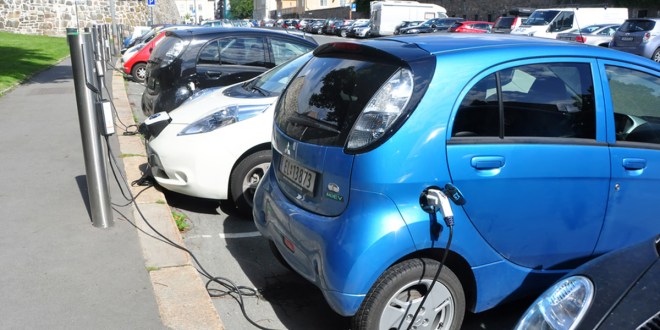
It is a great idea to replace all fossil fueled vehicles in India with electric vehicles. It not only improves the country’s fuel security scenario but also improves the country’s negotiating position in the international platform.
India generated 1,050 TWh of grid power in 2012. Government’s vision of faster industrialization to provide the much-needed jobs, sustain growth and drive development and to have electric cars as the available vehicles by 2030, will elevate the energy demand. But not to forget as India gets more and more urbanized its energy aspirations also gets amplified, its per capita consumption of electricity goes up.
As per bridge to India, it is more than five-fold increase to almost 5,000 TWh of electricity – just above what China or the US generates today. Few scenarios across the country might help us understand and prepare better for this ambitious dream.
1. Environment: Several source-appointment studies across the country has shown that “vehicles” contribute nearly 30% to the air pollution. So, once they are all replaced with electric-vehicles we can be assured that at least that much contribution to country’s air-pollution will be reduced. Although that doesn’t mean that battery disposal is any easy.
2. Electricity: We are not talking about a city or state, but the entire country. In 2014 the country was nearly 80 percent electrified but that doesn’t yet mean the required infrastructure for having electric vehicles. If India were to provide its citizens (by then 1.5 billion) with the required amount of power by 2035, it would need to increase its energy generation by nearly 150 percent. On 30th March 2017 when Delhi’s power demand went up by mere 5%, it had the discoms panic to save the capital from possible blackouts. Imagine even if 50% of Delhi’s electric vehicles (hypothetically) will be put to charge at night, it would simple fry the grid.
3. Industry: The NEMMP (Nations Electric Mobility Mission Plan) India aimed to deploy 400,000 electric cars (EVs) by 2020, for which they aren’t even fifty percent ready. Among the manufacturers, except Mahindra no one had a successful EV run, even REVA is getting pulled out of UK due to performance and cost issues.
Amid the possible demand, the country’s largest automotive market shareholder, Maruti Suzuki, is likely to introduce electric cars soon. The Indian government had recently announced a policy which indicates its intention to make India an electric car only market by 2030. Moreover, a growing environment pollution concern and pressure from the National Green Tribunal (NGT) has encouraged the government to promote positive developments. Government has reduced GST on electric cars to 12 percent from 20.5 per cent, while hiked it for hybrid cars to 43 per cent from the earlier 12.5 percent.
Industry veteran RC Bhargava, the Chairman, Maruti Suzuki, said, “The government has announced a program to rapidly promote the use of EVs. It is a very laudable policy, as it will greatly enhance the usage and, over time, lead to a cleaner environment. We will first look and understand the feasibility of this technology and the available infrastructure across the country.”
Nothing is impossible, so is having electric cars on India roads zipping across. Nevertheless, to ensure that few policies must be sacrificed and new ones to be nurtured. As the NEMMP almost fell flat on its face due to Industry’s insubordination, the government must give enough lead time to the Indian automobile industry so that this over-protected child doesn’t cry foul. NTPC is keen to provide infrastructure support.
We had the first micro-hybrid in Mahindra Scorpio. WE should have either developed complete hybrids since then or provided incentives to import hybrid vehicles into the country for the sake of environment – said Parthaa Bosu, Innovation and Future Strategies Head for DFAG, a South-Asian think tank on environment and air quality.
Post which the Indian government needs to have policies ready to allow both technology and vehicles into the country. Meanwhile pushing localization for R& D will aid the process. Automobile companies such as Toyota, {the maker of Prius Hybrid} GM, Nissan with its Leaf pure EV has proven electric vehicle technology can be harnessed.
Justified subsidies and incentives will be needed to inject the electric cars into the system. Although it’s not going to be much different except that the traffic congestions across will be quieter then.


